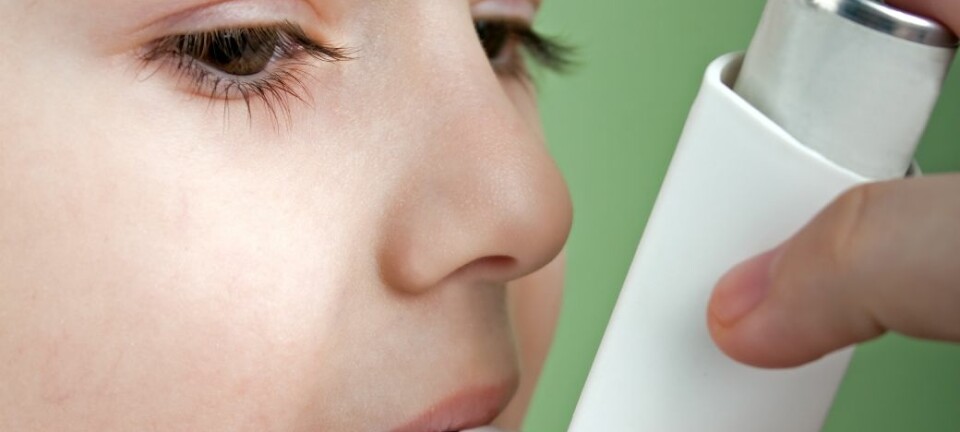
Asthma starts in mother’s womb
Pioneering study finds that children’s asthma starts developing already at the foetal stage.
The world’s asthma researchers should focus their spotlight on the pregnant woman’s body when trying to figure out why children get asthma.
For the first time ever, researchers have discovered that a significant share of seven-year-old asthmatic children have had respiratory problems since they were born.
”This is the answer to the question that all asthma researchers have always been asking themselves: when does the disease start developing?” says Hans Bisgaard, the head of the Danish Pediatric Asthma Center (COPSAC) at Copenhagen University Hospital in Gentofte and a professor of paediatrics at the University of Copenhagen.
Sedating 400 newborns
The researchers found the solution to this mystery by sedating 400 children a month after birth. This enabled them to make detailed measurements of the children’s lung function. (See video of the method at the COPSAC website.)
The children were since followed through their childhood and had the same lung measurements performed at age seven.
The study shows that half the children who had developed asthma at the age of seven already as infants had difficulty exhaling and had delicate airways that trigger convulsions when irritated – both of which are typical symptoms of asthma.
”It’s a very valuable study in our preparations to build a strategy for where to target our efforts when trying to prevent asthma,” says Bisgaard.
“Now we know that it’s not in adulthood or at school age, but in the early childhood years or even as early on as in the pregnant woman.”
This fits in well with the research team’s previous findings, which also suggest that the disease is established early on in life.
The findings have been published in the American Journal of Respiratory and Critical Care Medicine.
No knowledge about prevention of asthma
Although this breakthrough reveals at which point preventive efforts should be applied, researchers still have some way to go before they can determine how to stop the development of asthma.
For many years, asthmatic children have been given inhalators which contain so-called corticosteroids, such as Pulmicort and Flixotide, which alleviate the symptoms.
It was hoped that these steroids could also prevent asthma. But the COPSAC researchers have shown in previous studies that this is not the case. The new study only confirms that asthmatic children experience deficiencies in their lung functions regardless of whether or not they have been treated with corticosteroids.
Could vitamin D and fish oil help?
The DPAC researchers have now started looking elsewhere to find clarity on the matter.
Some 700 pregnant women are currently taking part in an experiment in which they are given either vitamin D, fish oil or a placebo.
The researchers wish to test whether vitamin D could reduce the number of asthmatic children. Previous studies have shown that low levels of vitamin D in the mother lead to an increase in asthmatic symptoms in the first year of the child’s life.
Fish oil is included in the study for three reasons:
- Studies suggest that the fatty acid composition in the body helps determine which bacteria survive in the body – and that might have a bearing on whether the child develops asthma.
- Animal studies have shown that fish oil can restore an otherwise destroyed bacterial flora.
- Other studies indicate that children in the Faroe Islands are born larger and develop only half as much asthma as other children. Studies also suggest that people who live near coastal areas in England and Australia have a significantly lower risk of developing asthma and allergies.
----------------------------------
Read this story in Danish at videnskab.dk
Translated by: Dann Vinther














